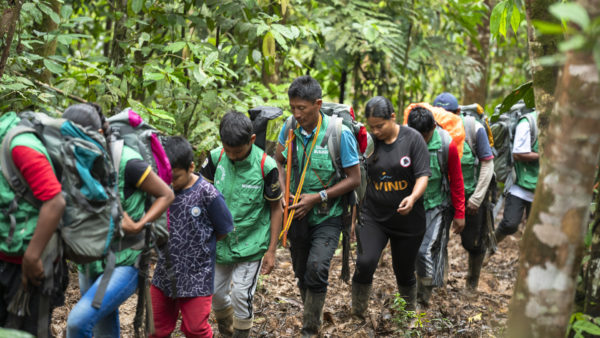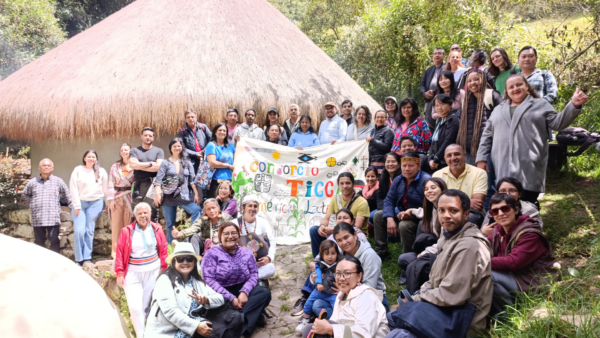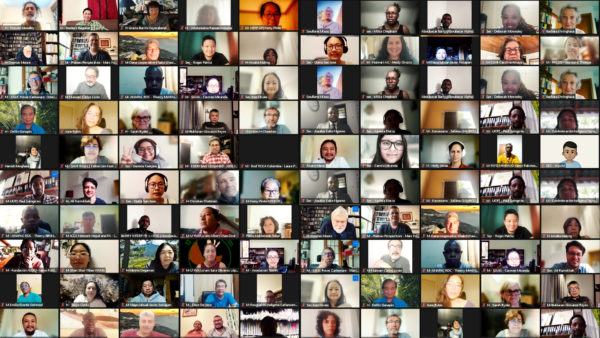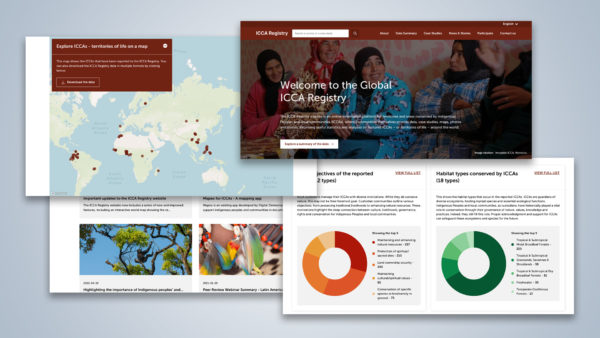— Luis Guillermo Izquierdo
First published on 12/16/2024, and last updated on 07/08/2025
Dear friends, 2024 was a year of change, transitions, and growth for the ICCA Consortium, our association supporting Indigenous Peoples and Local Communities.
The first year of the new strategic plan period saw us journey through a period of leadership transition at our association’s governance and management organs, with several changes and new faces in the Council and Secretariat. We saw new organizations and individuals joining our associations as members and honorary members. We now have 247 members and 484 honorary members from 92 countries worldwide.
This year, representatives of our Secretariat, Council, regional organizations, and Council of Elders got to meet in person in Guasca, Colombia. The dialogues that took place during the in-person meeting in Guasca illuminated the Consortium’s strategic direction, significantly strengthening our association’s ability to effectively deal with the challenges faced by Indigenous Peoples and Local Communities in our efforts to document, sustain and defend the ICCAs—territories of life.
There is an organization-wide consensus that, as a global association promoting appropriate recognition and support for the territories of life, the ICCA Consortium needs to adapt its organizational structures and processes as required by the needs of our membership and the challenges the communities we work with face.
In line with that, an ad-hoc organizational change committee was also conceptualized and formed, with the names of nominees finalized during the in-person gathering. Collectively, the following key priorities for organizational change were identified: (1) Decision-making, power sharing, and structure; (2) Relationships, collective articulations, coordination, communications, and culture of care; (3) Remuneration and volunteerism dynamics; (4) Team capacity and skills; (5) Regionalization; (6) Organizational knowledge management; (7) Resource mobilization and fundraising; (8) Membership; (9) Supporting the leadership transition; and (10) Supporting, establishing and implementing regional plans.
This year, we have seen a few positive outcomes for our communities at the Sixteenth Conference of the Parties to the Convention on Biological Diversity (CBD COP16). Such positive changes within the global policy frameworks related to the environment and climate alone will not resolve the numerous issues we face in our communities. Nevertheless, we recognize that such positive changes in the global policy regime enhance our ability to engage in significant decisions on the international and, in some cases, national levels, enabling us to suggest actions that better reflect our circumstances on a community level.

We must continue our advocacy and self-organizing work so that changes in global policy will help protect and preserve the ancestral lands and traditional knowledge of our Indigenous Peoples and Local Communities. Our works must be rooted in the democratization of scenarios and based on proposals in which society and the people of the territories are present.
Dear friends, in 2025 and beyond, the ICCA Consortium will continue to overcome challenges to working more closely with our members, territories of life, partners, and allies to strengthen our strategic issues mentioned above as a global movement for the defense and promotion of the rights of Indigenous Peoples and Local Communities.
It is essential to monitor the well-being of our communities, document information on registered territories of life, and update the information. On the other hand, we have to deepen our work on documenting and registering new territories to the various national, regional, and global ICCA registries.
In response to the challenges of CBD target 3, our movement requires advancement in strategies to build shared databases and registries about the origins and actors of Indigenous Peoples and Local Communities. Such strategies will promote new registrations of ICCAs. We also have to start proposing the strategic accounting of territories of life and/or Indigenous and traditional territories.
We must strengthen our partnerships and work in alliance with different platforms, organizations, and forums to defend and promote the rights of Indigenous Peoples and Local Communities. Whether it is global environmental or climate policies or works to protect our territories, our association’s works should be guided by the collective experience acquired by the thematic working groups, global and regional councils, national networks, and secretariats.



